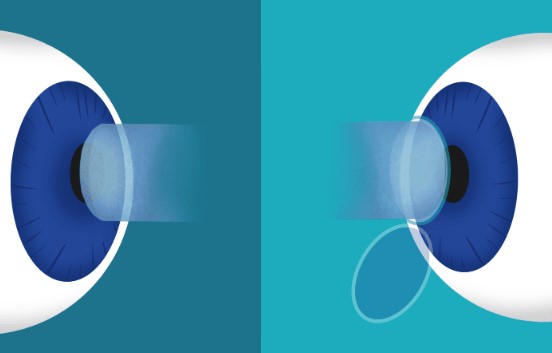Improving Visual Acuity with Photorefractive Keratectomy Eye Surgery

Imagine waking up every morning and seeing the world clearly without reaching for your glasses or popping in your contact lenses. For many, this is a distant dream, but photorefractive keratectomy (PRK) eye surgery can make it a reality. If you’re struggling with myopia or just tired of the daily hassle of vision correction, PRK might be a game-changer for you.
Understanding PRK Eye Surgery
PRK is a type of laser eye surgery used to correct vision problems like myopia, hyperopia, and astigmatism. Unlike LASIK, which creates a flap in the cornea, PRK works by reshaping the surface of the cornea itself. This process allows light to be accurately focused onto the retina, enhancing visual acuity.
Personal Experiences with PRK
Finding Freedom from Glasses
Let’s talk about Emily. Emily has worn glasses since she was five years old. They were her constant companion, but also a burden. “I hated wearing glasses,” she recalls. “They were always slipping down my nose, fogging up, and I couldn’t play sports without worrying about them breaking.” After years of frustration, Emily decided to undergo PRK surgery. The result? Clear vision and freedom from glasses. “It’s like a whole new world,” she says with a smile.
Career Opportunities Expanded
Then there’s John. John dreamed of becoming a pilot, but his poor vision stood in the way. He considered various options and finally chose PRK eye surgery after careful research and consultation. Post-surgery, his vision improved significantly, and he met the visual acuity requirements needed for pilot training. “PRK didn’t just improve my vision; it opened up career opportunities I never thought possible,” John shares.
Overcoming Hesitation
Sarah’s story is a bit different. She was initially hesitant about eye surgery. The idea of someone operating on her eyes was daunting. However, after thorough consultations with her ophthalmologist and understanding the safety and effectiveness of PRK, she decided to go ahead. Today, Sarah is thrilled with her decision. “I was scared at first, but now I’m so glad I did it. My vision is better than I could have hoped for,” she says.
Advocating for Health and Wellness
Lastly, there’s Mark, a health enthusiast who is always on the lookout for ways to improve his well-being. He opted for PRK and experienced a seamless recovery. Now, he’s a vocal advocate for the procedure. “Recovering from PRK was straightforward, and the benefits far outweigh any temporary discomfort. I tell everyone I know to consider it if they’re eligible,” Mark asserts.
Benefits of PRK Eye Surgery
PRK offers several advantages that make it an attractive option for many vision correction seekers:
- No Flap Complications: Since PRK does not involve creating a corneal flap, there’s no risk of flap-related complications.
- Suitable for Thin Corneas: People with thin corneas, who may not be candidates for LASIK, can often benefit from PRK.
- Wide Range of Vision Correction: PRK can effectively treat myopia, hyperopia, and astigmatism.
- Long-Term Results: PRK provides lasting vision correction, reducing or eliminating the need for glasses or contact lenses.
The PRK Procedure
Understanding what happens during PRK can help alleviate some of the anxiety associated with the procedure:
- Preparation: Your eye is numbed with anesthetic eye drops. You’ll be awake but comfortable throughout the surgery.
- Removing the Epithelium: The surgeon removes the outer layer of the cornea, called the epithelium.
- Reshaping the Cornea: A laser is used to reshape the cornea, correcting the refractive error.
- Healing: A protective contact lens is placed on the eye to help it heal. The epithelium naturally regenerates over a few days.
Read also: How To Select The Best Mobile IV Drip Service For Your Health Needs
Recovery and Aftercare
Recovering from PRK requires a bit of patience and care:
- Initial Discomfort: Expect some discomfort and blurry vision for the first few days. Your doctor will prescribe medication to manage pain.
- Follow-Up Appointments: Regular check-ups are crucial to ensure proper healing.
- Gradual Improvement: Vision gradually improves over a few weeks to months. Most patients achieve their best vision within three to six months.
Is PRK Right for You?
While PRK has many benefits, it’s essential to consult with an eye care professional to determine if it’s the right choice for you. Factors like your eye health, corneal thickness, and vision goals will influence your suitability for the procedure.
Conclusion
Photorefractive keratectomy eye surgery offers a promising solution for those looking to improve their visual acuity and liberate themselves from glasses or contacts. Whether you’re a myopia patient, a vision correction seeker, or a health enthusiast, PRK can transform your life in ways you never thought possible.
Ready to explore the world of clear vision? Consult with a professional to see if PRK is right for you and take the first step towards a glasses-free future.
Remember, a clear vision is not just a dream—it’s achievable with PRK.




